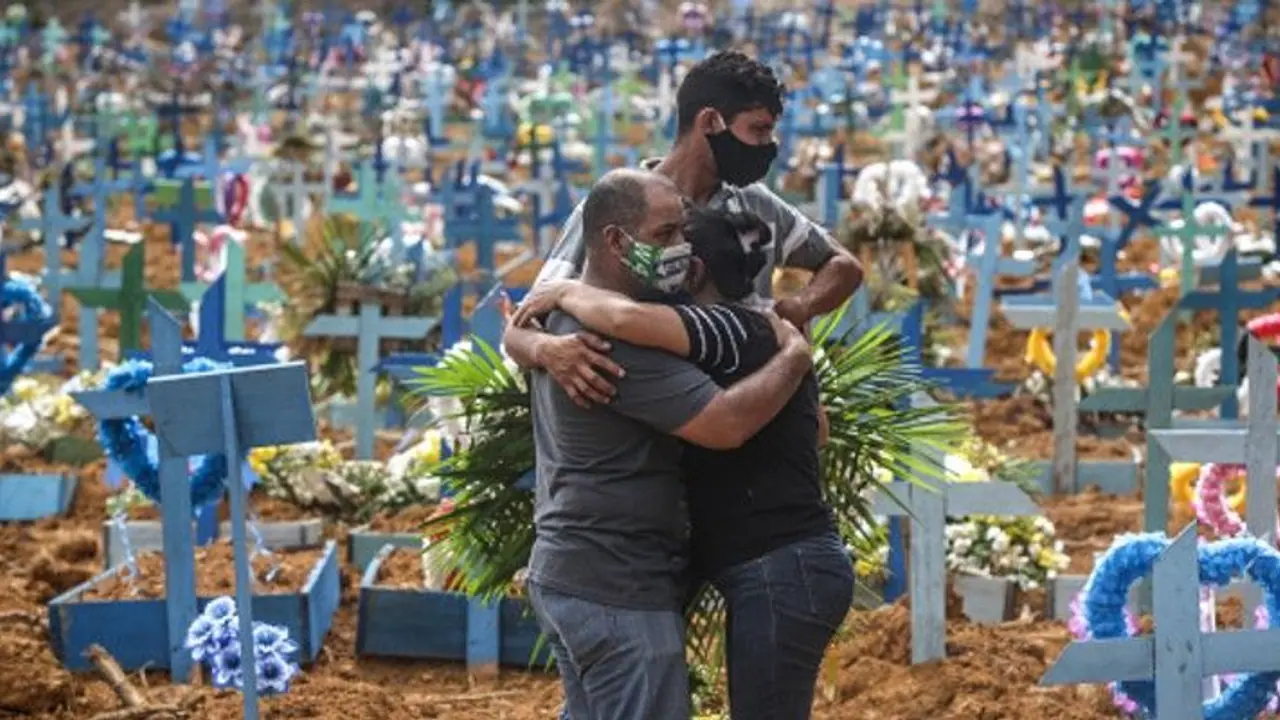The country of 212 million people has now registered 120,262 deaths from the virus and 3,846,153 infections, the health ministry said in its daily update.
Rio de Janeiro: Just over six months after registering its first case of the new coronavirus, Brazil crossed the grim threshold of 120,000 people killed by COVID-19 Saturday (August 29), with no end in sight to the crisis.

The country of 212 million people has now registered 120,262 deaths from the virus and 3,846,153 infections, the health ministry said in its daily update.
Brazil is just the second country to surpass a death toll of 120,000 in the pandemic, after the United States, where the number killed is now more than 182,000.
Unlike in Europe and Asia, where the virus hit hard and then subsided, Brazil's outbreak is advancing at a slow but devastating pace, said Christovam Barcellos, a researcher at public health institute Fiocruz.
"Brazil is unique in the world. Since the start of the pandemic, its curve has been different from other countries', much slower," he told AFP.
"It has stabilized now, but at a very dangerous level: nearly 1,000 deaths and 40,000 cases per day.... And Brazil still isn't past the peak."
Brazil confirmed its first case of the virus on February 26, a Sao Paulo businessman returning from a trip to Italy. It recorded its first death on March 16.
The pandemic soon turned political in Latin America's largest country.
President Jair Bolsonaro condemned the "hysteria" around the virus, and attacked governors and mayors who imposed lockdown measures, arguing the economic damage would be worse than the disease itself.
The far-right leader has instead pushed the drug hydroxychloroquine as the solution to the health crisis, despite studies showing it is ineffective against COVID-19.
He again said Saturday the controversial medication had "saved thousands of victims' lives" in Brazil.
Bolsonaro even took what he called the "right-wing" drug himself when he was diagnosed with the virus in July.
Experts widely agree the lack of a cohesive message from Brazil's leaders is responsible for the country's failure to "flatten the curve."
"It's terrible. There's been a total lack of coordination by the federal government, which unfortunately is another characteristic of the pandemic in Brazil," said Barcellos.
The virus has meanwhile spread from the first demographic it infected -- wealthy travelers returning from abroad -- to more vulnerable groups and to the interior of the country.
Impoverished residents of overcrowded favelas, or slums, in cities such as Sao Paulo and Rio de Janeiro have been hit especially hard.
So have indigenous groups in the Amazon rainforest, who have a history of vulnerability to outside diseases.
Brazil's economy, the biggest in Latin America, is meanwhile heading for a record recession this year because of the fallout.
The economy ministry estimates GDP contracted by eight to 10% in the second quarter of 2020, and economists are predicting a contraction of more than five percent for the year.
But Bolsonaro, paradoxically, is as popular as ever.
The president, who took office in January 2019, received the best approval rating of his term earlier this month, 37%, up five points from June, according to leading polling firm Datafolha.
It found he was performing particularly well among poor Brazilians who have been receiving monthly stimulus payments of 600 reals (about $110) to offset the economic pain of the pandemic.
The former army captain had an approval rating of 42% among recipients of the temporary stimulus payments.
The poll also found 47% of Brazilians do not blame Bolsonaro for the country's COVID-19 death toll, while just 11 percent saw him as the "main culprit."
Other recent polls have also found the man dubbed the "Tropical Trump" has rebounding popularity and a strong chance at re-election in 2022.
"Bolsonaro is a phenomenon. He's a political force to be reckoned with," said political analyst Michael Mohallem of the Getulio Vargas Foundation.
Still, he added, "it's shocking the way he has handled this. It's not just his denialism.... He has often crossed the line of disrespecting victims."
Meanwhile, "the number of deaths is scandalously high," he said. "And I think someday he'll have to pay the price."
(With inputs from agency)
